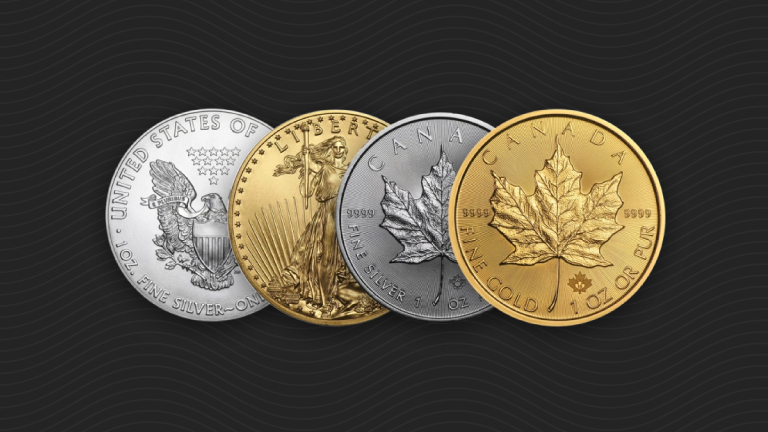France May Be Losing Its Head…
By Peter Schiff
According to the European Central Bank, the Italian banking industry now holds more government debt than the banks of any of the major European economies: nearly €324 billions worth of shaky bonds. The Spanish banking sector is also heavily overweight in government paper, at a new record high of €263 billion.
This bond-buying spree was caused by the “Sarkozy Trade,” or the wild printing of euros by the ECB, which French President Nicolas Sarkozy hoped would relieve France’s own public debt problem. As a result of his campaigning, any European bank can get all the euros it wants at the low, low price of 1% interest for 3-year loans – and instantly convert it into its own government’s bonds. Italian and Spanish 10-year bonds pay above 5.5%, yielding a 4.5 percentage point return for doing nothing (though whether this is a winning trade in the long-term depends on what happens after the first three years).
Just as in the US, private investors can no longer be counted on to purchase all the bonds that European governments would like to issue. So, the ECB is printing the euros to buy them – and thinly disguising the process by funneling it through the banking sector.
Sarkozy vs. Hollande
The “Sarkozy Trade” is actually considered a conservative policy in France, so investors certainly should not expect any improvement if Socialist candidate François Hollande wins the presidential election on Sunday. Hollande has promised to ease up on austerity and push the ECB even harder to devalue. This is just like here in the US, where Obama hasn’t offered an alternative to Bush’s policies so much as a doubling down on them.
Though Spain recently elected a center-right government, most of Europe is expected to follow France in this leftward shift – if for no other reason than most of the incumbents are moderately pro-austerity rightists and the electorates are running out of patience for reform. The lion’s share of the resulting new government spending will surely be financed by bonds purchased by the ECB or banks using ECB money. This is a recipe for instability and inflation.
The Euro Plague
Greece caused the eurozone to catch the flu, but its economy is relatively tiny, smaller than 14 US states and 11 EU states. The national debt of Greece is around €347 billion, which is 159% of its GDP but still smaller in absolute value than its neighbors in Club Med. Italy, for instance, is over €1.88 trillion in the red (120% of GDP); the recently downgraded Spanish debt is over €706 billion (66% of GDP). These figures dwarf the €440 billion remaining in the European Financial Stability Facility after the Irish and Portuguese bailouts. So, if Greece gave the euro the flu, Spain and Italy are going to give it something like Ebola.
There are countries that have inoculated themselves against the euro plague by budgeting responsibly, forming overseas trade relationships, and, most importantly, staying out of the common currency. Switzerland’s national debt is US$224 billion, 36% of its GDP. Norway comes in at US$97.4 billion, 49% of GDP. These aren’t impressive figures compared to, say, Hong Kong (debt level: 10% of GDP), but at least they don’t threaten failure of their monetary systems.
Europe on Thin Ice
The future of France and the rest of eurozone depends not on the outcome of this election, but on the outcome of the battle of ideas. Will Europeans be able to stomach the painful reforms needed to return to sustainable growth? Will healthier member-states like Germany defend the independence of the ECB? It will be a hard sell. Many Europeans wonder why they should endure the harsh reality of economic recovery – through the process of recession, saving, and the ultimate unpleasantness of hard work – when they can simply print more money.
The problem is that eventually you run out of suckers willing to bankroll this game. The Chinese aren’t going to bailout Europe to the tune of trillions. Many Chinese are shocked at their government’s overexposure to depreciating US bonds, and they won’t make the same mistake twice. Japan has its own deep debt problems. And other creditor nations are too small to offer significant support. Europe is heading farther out onto thin ice without a lifeline in sight.
Strategy for a Declining Euro
Putting on our investor’s cap, the way to take advantage of the hastening decline of the world’s second currency is to gain exposure to its oldest form of money – precious metals. Major European banks are reporting increasing outflows from euros into gold. With no paper reserve currency to depend on, the IMF reports that last year central banks purchased over 430 metric tons of gold. The IMF itself currently holds 2,814 tonnes of the “barbaric relic.”
Given the overall austerity exhaustion in Europe, there is now yet another rush of capital to buoy the medium-term price of the precious metals. Unfortunately, short-term, some European institutions are no doubt foolishly buying dollars in their flight to safety. Once it becomes clear to these holdouts that the age of paper money is setting on both sides of the Atlantic, the precious metals should resume their rise.
It’s a good bet that gold will be around a lot longer than the euro, no matter what the name of the President of France. But if the Socialist candidate wins the office and pushes his radical Keynesian agenda, I won’t be surprised when selling euros for gold becomes known as the “Hollande Trade.”
Follow us on Twitter to stay up-to-date on Peter Schiff’s latest thoughts: @SchiffGold
Interested in learning about the best ways to buy gold and silver?
Call 1-888-GOLD-160 and speak with a Precious Metals Specialist today!

